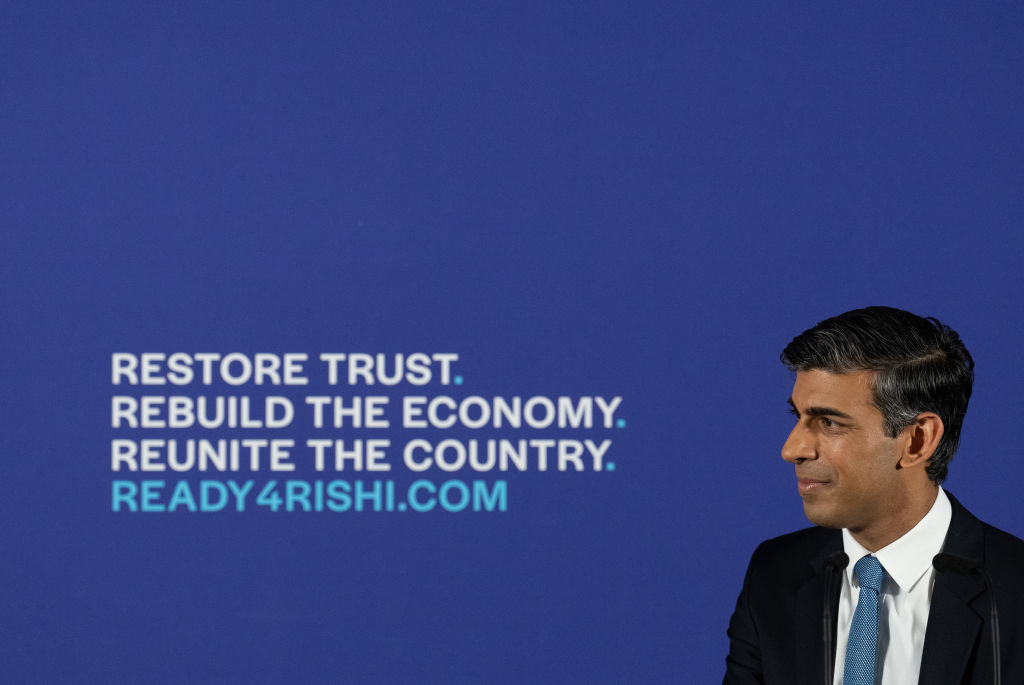The dizzying tax promises of the Tory campaigns aren’t enough for the City

IT WAS more than four years ago now since the outgoing prime minister, Boris Johnson, remarked to the Belgian ambassador to the EU that his approach to the private sector was “f*** business”. For a leading Conservative politician with ambitions towards Downing Street, it was an extraordinary thing to say. Yet it was clearly an epigram which Johnson was happy to see broadcast: for him it summed up the populist mood of disenchantment with the ultra-rich, with large corporations and with the globalised community. In that mood he saw his best chance of power.
Now Johnson’s time in Downing Street is drawing to a close, and the Conservative Party is choosing his successor. At the time of writing there are five candidates—Sunak, Mordaunt, Truss, Badenoch, Tugendhat—and while three of them have held jobs at the Treasury, it is still not clear how any new leadership will engage with the world of business and finance.
As the UK struggles out of the pandemic and the economic downturn which accompanied it, growth is near the top of everyone’s list of priorities. Anyone on the centre-right understands that working with the private sector will be an essential part of sustaining the recovery; but how?
Corporation tax has become a lively issue, a quick fix handout for the City for many. Rishi Sunak, seeking to present himself as the candidate of responsible government, has reaffirmed his plans, made when chancellor, to raise corporation tax from 19 per cent to 25 per cent by 2025. Liz Truss, the foreign secretary, has pledged to maintain the levy at its current rate, making up the £16bn shortfall by paying off the UK’s growing debt at a slower rate.
Cutting corporation tax is good for headlines, but it could exacerbate inflation as workers demand better pay; meanwhile the British Chambers of Commerce have warned that taking it down to 15 per cent (as mooted by caretaker chancellor Nadhim Zahawi) could breach international agreements.
Bearing down on the overall burden of taxation has been a central theme for most candidates. Trade minister Penny Mordaunt has promised to halve fuel duty as a priority, Kemi Badenoch has undertaken to “reduce corporate and personal taxes”, while Liz Truss and backbencher Tom Tugendhat both want to cancel April’s increase in national insurance. By contrast, Sunak has set his face against instant tax cuts.
Other measures have been floated. The 5 per cent rate of VAT on domestic fuel could be cut further (something Brexiteers argued would not be possible inside the EU), or more could be done to court growth in sectors like fintech, for example through Mordaunt’s efforts to agree individual deals with US states on issues such as mutual recognition of qualifications.
There is a more fundamental argument at stake here. The UK’s overall tax burden is set to reach its highest level since the 1940s, and most candidates have adopted a business-friendly commitment to reverse that and pursue a lower-tax regime. Sunak is the exception. Indeed this is the central theme of his campaign. Other ideas, he says, are “fairy tales”. He wants to cut tax – but now’s not the time, as he rests heavily on the notion of fiscal prudence.
The contest is not yet half over. This coming week will see the candidates narrowed down to two, who will then compete over the summer for the support of the Conservative Party membership. Business could—and should—press for a more imaginative stance. The vital levelling-up agenda should not be at the expense of London’s status as a great financial capital and a fertile environment in which to trade and do business.
That means a lot more than simply rates of taxation. The next prime minister should make sure that the UK has access to a highly skilled workforce (this includes monitoring the effectiveness of the immigration system); we need a better and more affordable housing market to encourage home ownership and labour market flexibility; development of infrastructure is important, both in terms of transport and digital connectivity.
Once there are two candidates, business is entitled to ask more searching questions of our would-be heads of government. Each needs to understand that Johnson’s “F*** business” was a blind alley. A successful economy is the route to prosperity for all of us, and is desperately needed as we rebuild after the pandemic.